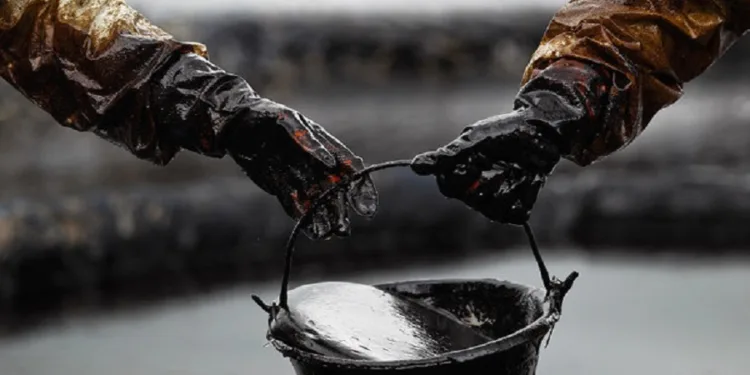The federal government of Nigeria, through the Nigeria Upstream Petroleum Regulatory Commission (NUPRC) has introduced new regulations requiring its oil producers to sell crude oil to local refineries in a move to reduce the country’s dependence on imported refined products.
The recent regulations stipulate that every oil company operating in Nigeria is obligated to provide crude oil to domestic refineries that are incapable of sourcing it locally. Only once these domestic supply obligations are met, can producers proceed with exporting crude oil.
The NUPRC will act as an intermediary between local refiners and producers in cases where negotiations for crude supply cannot be concluded. Its role will be to facilitate the establishment of a sales purchase agreement using a willing-buyer, willing-seller approach.
According to the regulations, payments for crude to domestic refiners can be made in dollars, naira, or a combination of both.
The Domestic Crude Oil Supply Obligation initiative is set to be implemented by the regulator in the latter half of the year. The precise amount of crude that each refinery must acquire has yet to be finalized.
What The NUPRC Boss Has To Say
Chief Executive, NUPRC, Gbenga Komolafe while responding to a question on the currency of transaction for crude oil purchase, as approved in the new template, Komolafe stated that it would be either in naira or dollar, adding that naira transactions would free the pressure on the country’s foreign exchange rate.
The NUPRC boss also pointed out that the template had become effective because all necessary parties had signed up for it.
He said, “The PIA intends to make the implementation (of crude oil obligation) very easy for the parties, both for the producers and refineries. So the answer simply is that the currency for the transaction would either be in naira or dollar. That is the simple answer.
“But we all know that if the transaction is carried out in naira, that itself will free the pressure on the exchange rate. That will help the exchange rate. So that is the intent and besides, the overall intent of the Petroleum Industry Act is to develop our midstream, which is a very laudable provision of the PIA.”
In the currency of payment section of the new template, it was stated that “the payment shall be in either United States dollar or naira or both. Where the payment is in both currencies, the payment split shall be as agreed in the SPA between the producer and the refiner.”
Crude Reserves Rises
During a recent briefing, the government revealed that the total crude oil and condensate reserves in Nigeria increased to 37.5 billion barrels as of January 1, 2024, with a life index of 68.01 years.
It also announced an increase in the country’s gas reserves, as this moved up to 209.26 trillion cubic feet as of January 1, 2024, while its reserves index life was put at 97.99 years.
READ ALSO: Dr Arikana, Enabulele, Others Team Up For Ubuntu Awakening Summit
Komolafe said, “I am pleased to present to you an overview of the nation’s oil, condensate, associated gas, and non-associated gas reserves as of January 1, 2024, as follows: 1. Crude oil and condensate reserves stand at 31.56 billion barrels and 5.94 billion barrels respectively, amounting to a total of 37.50 billion barrels.
“2. Associated gas and non-associated gas reserves stand at 102.59 trillion cubic feet and 106.67TCF respectively, resulting in total gas reserves of 209.26TCF. The reserves life index is 68.01 years and 97.99 years for oil and gas respectively.”
Komolafe stated that positive gross additions to oil and gas reserves of 1.087 billion barrels and 2.573 trillion cubic feet respectively were recorded.
Background
In January, the NUPRC enforced a requirement for oil producers in the nation to assign approximately 483,000 barrels per day (bpd) to domestic refineries. Among these refineries, the Dangote refinery, with a capacity of 650,000 barrels, received the majority allocation of 325,000 bpd.
The Warri and Port-Harcourt refineries are anticipated to gain advantages from the crude oil supply, with expected daily allocations of 75,000 and 54,000 barrels, respectively. Additionally, smaller refineries like Waltersmith, OPAC, and Niger Delta Petroleum Refinery are set to receive a maximum of 10,000 barrels per day.
The initiative called the Domestic Crude Supply Obligation Guidelines (DCSO) aims to reduce the importation of petroleum products into the country.
The Petroleum Industry Act (PIA), passed in 2021, includes a provision that requires oil producers in Nigeria to allocate a share of their crude oil to domestic refineries to avoid shortages.










